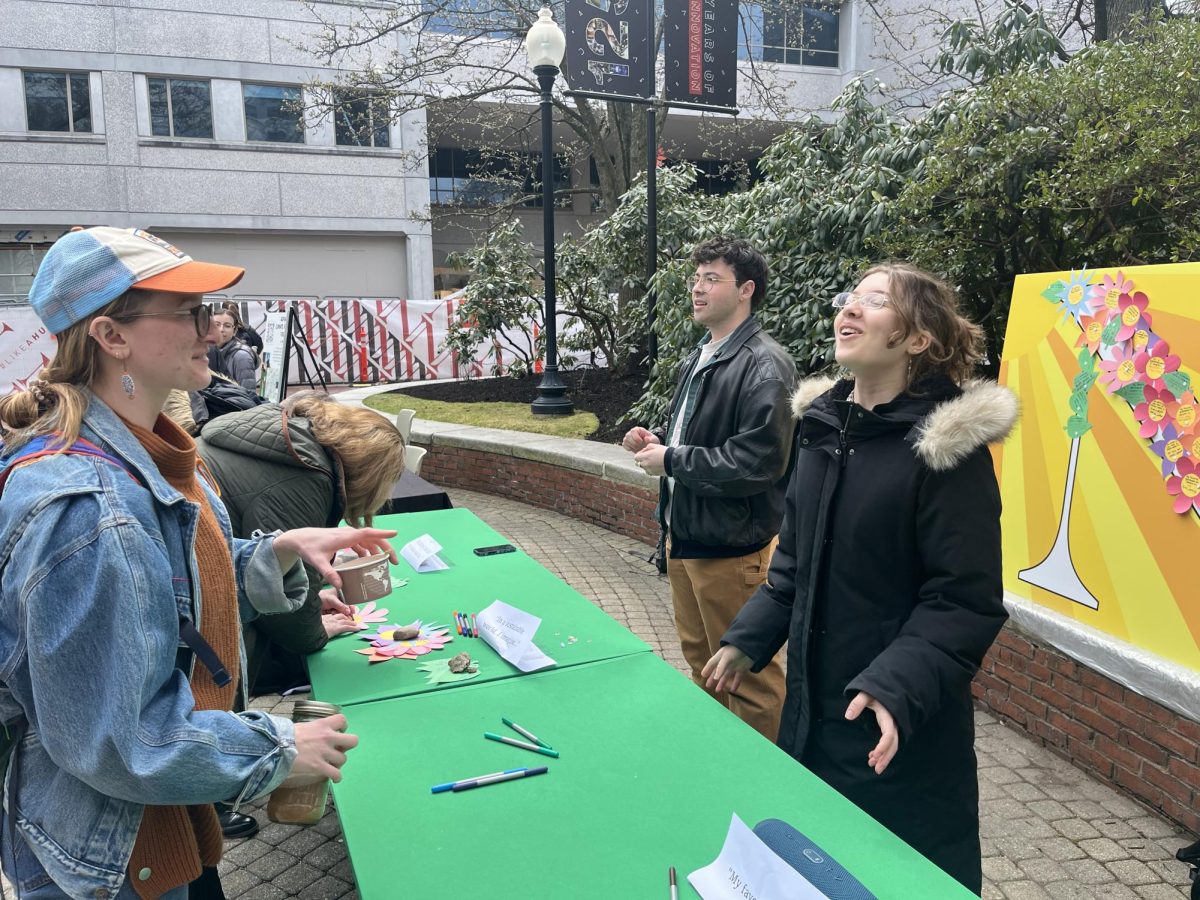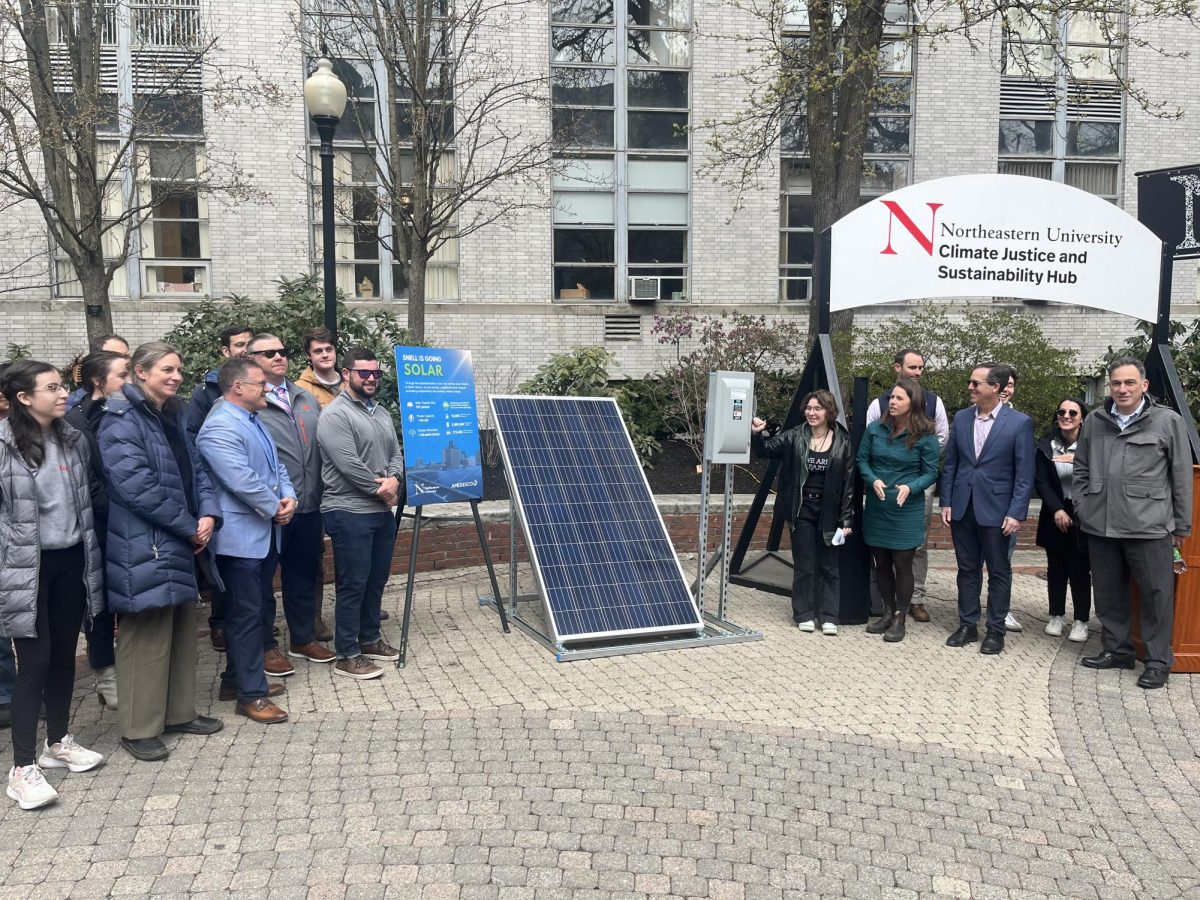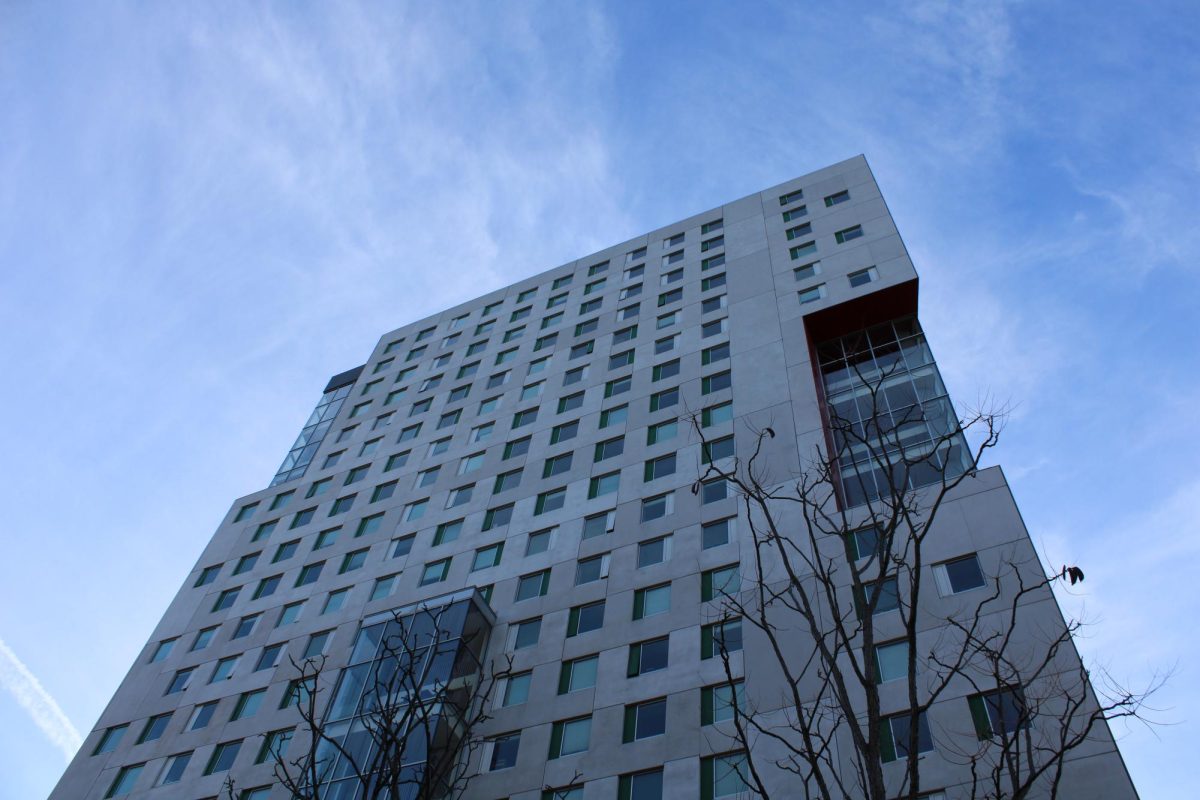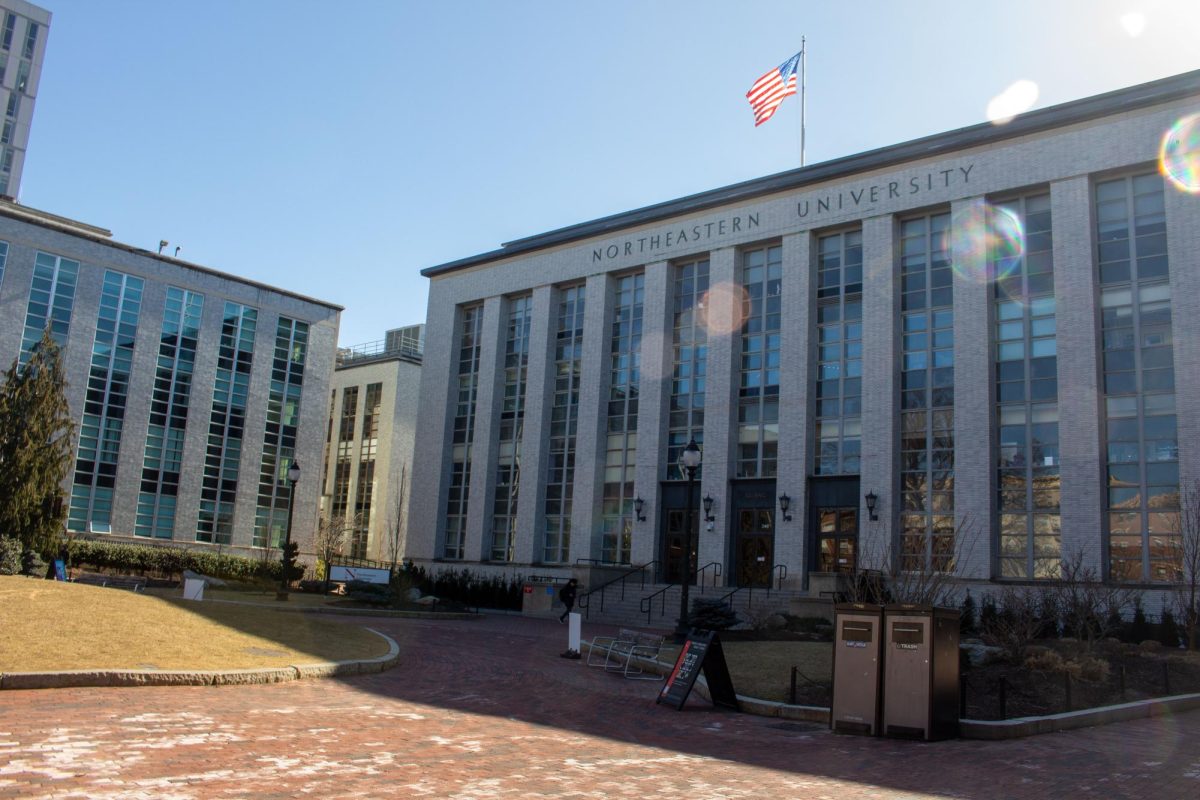In early spring, Northeastern announced it would activate solar panels on the roof of Snell Library, marking a major step forward for the university’s commitment to sustainability.
The array of 332 solar panels, activated April 2 as part of the Snell Library renovations, have a power capacity of about 158 kilowatts and will lower Northeastern’s carbon emissions by 146 metric tons a year, according to the university. This reduction is comparable to taking 127 gasoline-powered vehicles off the road for an entire year — and that’s from Snell alone.
The university emitted 55,806 metric tons of CO2 equivalent in its most recently-reported performance year, down 27% from 2005, according to 2023 self-reported data from a sustainability tracking database.
The move will not only power Northeastern’s only library, but its renewable energy attributes will also help EXP, Northeastern’s newest science and engineering building, in seeking Leadership in Energy and Environmental Design, or LEED,
Platinum certification, the world’s most widely used green building rating system. Northeastern’s Climate Justice and Sustainability Hub, or CJS Hub, has led the university’s past and present solar power initiatives. Increased inclusion of green energy on campus is a larger part of Northeastern’s growing sustainability movement.
“Our sustainability journey at Northeastern has been a long one,” said Leah Bamberger, executive director of the CJS Hub, during a speech April 2 at Snell Library’s Solar Celebration. “You might be thinking that in 2024 going solar is not a huge deal. … But these projects are perhaps some of the most important renewable energy projects that we can be investing in.”
Bamberger spoke about how solar projects in urban environments are uniquely important. Solar panels can be difficult to install in cities because of rooftop equipment and shade from other buildings. However, solar panels in cities like Boston remove strain from the electric grid and create power closer to where it’s needed most.
“I have solar panels at my house, so when I heard they were bringing solar panels to Snell, I thought it was a really good idea,” said Nicole Rios, a third-year business administration major who attended the event. “I really like the goals and the mission of the Climate Justice and Sustainability Hub.”
The CJS Hub works with Northeastern’s facilities department to bring all aspects of the university’s operation up to the highest environmental and community standards. It is responsible for implementing the university’s current recycling program, leading compost initiatives and optimizing energy use in many buildings. Though students are happy with the library’s newest addition, many are looking for the university’s next sustainable action.

“I think [the solar panels] are great — any step in the right direction is a step,” said third-year environmental studies and political science combined major Orla Molloy, another event attendee. “It’s worth it to celebrate these victories. But I see so many different ways where there’s still work that needs to be done.”
Molloy’s call for action is echoed by many on campus, and administrators at the university appear to be listening. In the fall, administrators met with members of DivestNU, a student organization which advocates for the university to divest its endowment holdings from fossil fuels. The CJS Hub is also working on a flood of sustainable efforts with the Climate Justice Action Plan. Once finished, constructed with feedback from students, faculty and the Roxbury community, the plan will outline the school’s next 10 years of sustainable actions.
“[The CJS Hub] is trying to develop a plan for pushing the university forward … in climate justice and sustainability,” said Jacob Glickel, the director of sustainability operations for the CJS Hub. “We still have to use energy, but how do we reduce, as much as we can, the burning of fossil fuel on campus?”
Though significant progress has been made on the Climate Justice Action Plan, its concrete goals are still in development. Glickel said the completed plan will set university goals for carbon neutrality and beyond.
The university plans to use extra power from Snell’s solar panels to obtain a platinum LEED certification for EXP, the highest tier of the LEED sustainable measuring tool. The Interdisciplinary Science and Engineering Complex, East Village and even off-campus university housing like LightView are certified at lower levels. But solar power is just the beginning.
“[The Climate Justice Action Plan] incorporates ideas around social justice, social equity and thinking about what [sustainability] means for our campus, but also what it means for our neighborhood,” Glickel said. “We’ve been in the middle of a community process to engage not only the campus community, but our neighbors in Roxbury, to understand what climate justice means to them and how Northeastern can help them achieve that.”
Historically, the university’s operations have displaced many local citizens. Amit Shenoy is a third-year bioengineering major and co-chair of the Student Sustainability Committee, a collection of leaders from Northeastern’s sustainability-focused clubs affiliated with the CJS Hub. Shenoy said incorporating feedback from Roxbury citizens emphasizes both the justice and climate goals of the plan.
“One [Roxbury] community member had given the imagery of Northeastern being like Goliath, and the people around being like David. … They feel like Northeastern is taking things without asking permission,” Shenoy said. “So Northeastern put on an event called the Community Conversation, where these people could come and talk with the university. It was the first of its kind.”
These community efforts pair with an equal commitment to receiving and implementing student feedback. Kiran Khosla, the CJS Hub’s sustainability program associate, said her team has the perfect infrastructure to carry out suggestions that align with the student body’s goals.
“The Hub is really well positioned, since we [work with] Planning, Real Estate, and Facilities on the buildings, the biking infrastructure … we are integrating frameworks for sustainability,” Khosla said. “We work with students, too, about how [we can] educate students when it comes to climate justice leadership.”
Khosla said her desire is to engage people across the university, increasing the overall involvement in the campus sustainability movement.
“[Students are] excited to talk to me about … how they’re really passionate about preventing climate change,” Khosla said. “[The CJS Hub is] trying to create a culture of sustainability on campus, where it’s not just a small group of students who are focused on it, but everyone feels invested.”
Like Khosla, Shenoy aims to help Northeastern students voice their opinions on the university’s next sustainable steps, regardless of their direct campus involvement.
“Typically, people who aren’t involved in sustainability, they have a lot of other commitments and don’t have the time to get invested,” Shenoy said. “I think we can break that ‘sustainability bubble’ and get people to prioritize sustainability. If more and more students understand that they actually have leverage here on campus, then [change] is going to keep going.”
Editor’s Note: This article was updated at 11:20 p.m. April 27 to clarify that the solar panels would contribute to LEED certification for Snell and EXP, not entirely complete it. Also, instances of the article’s mentions of “installing” solar panels were changed to “activating” them.














